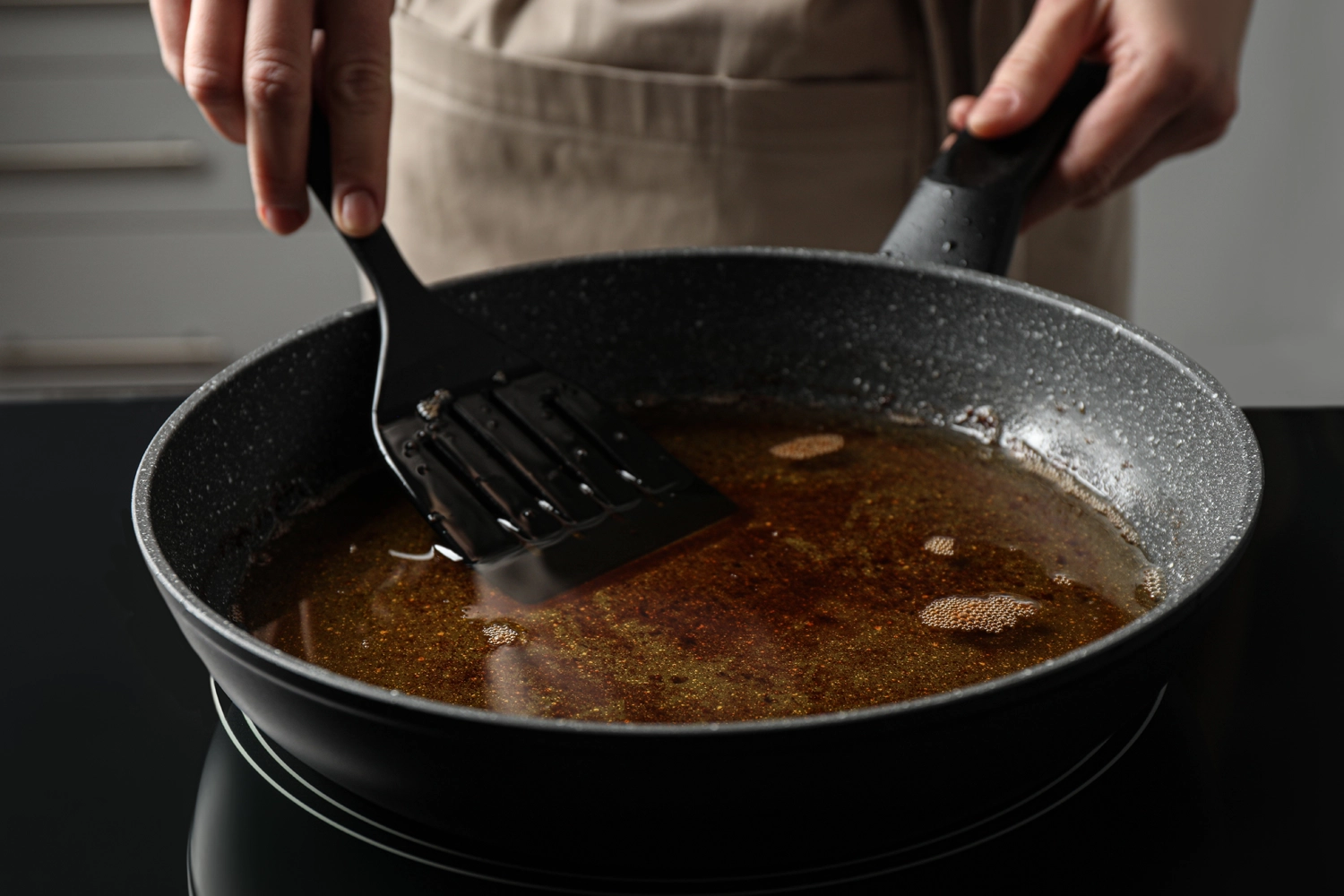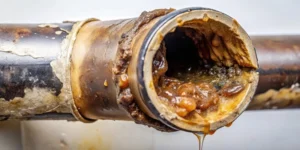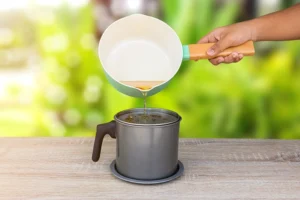Beware of FOG
Fats, Oils, and Grease

Protect Your Home and Community from Fats, Oils, and Grease
 Pouring fats, oils, and grease (FOG) down drains can lead to messy, costly sewage backups in your home and system-wide clogged pipes. When cooking, remember to cool it, can it, and trash it. FOG, common byproducts of cooking, include baking goods, cooking oil, meat fats, and dairy products. Residential and commercial FOG contribute to sewer system problems, resulting in serious public health and environmental issues. By properly disposing of FOG, we can improve our environment and community’s quality of life.
Pouring fats, oils, and grease (FOG) down drains can lead to messy, costly sewage backups in your home and system-wide clogged pipes. When cooking, remember to cool it, can it, and trash it. FOG, common byproducts of cooking, include baking goods, cooking oil, meat fats, and dairy products. Residential and commercial FOG contribute to sewer system problems, resulting in serious public health and environmental issues. By properly disposing of FOG, we can improve our environment and community’s quality of life.
- Properly dispose of FOG to prevent costly sewage backups and environmental damage.
- After cooking, pour hot grease into a metal can, let it cool, then throw it in the trash.
- Install screens in sinks and drains to catch food waste.
- Maintain exhaust hoods regularly to prevent buildup.
- Never pour grease or cooking oil into sinks, floor drains, dumpsters, or storm drains.
- Train kitchen staff on the importance of FOG disposal and best management practices.
Remember: Cool it, Can it, Trash it!
 FOG, or fats, oils, and grease, pose serious threats to our environment and public health. When poured down drains, FOG solidifies in sewer pipes, causing clogs and backups. Restaurants and food service establishments are significant sources of FOG due to the large amount of grease used in cooking. Proper disposal of FOG is essential to avoid costly fines and environmental damage.
FOG, or fats, oils, and grease, pose serious threats to our environment and public health. When poured down drains, FOG solidifies in sewer pipes, causing clogs and backups. Restaurants and food service establishments are significant sources of FOG due to the large amount of grease used in cooking. Proper disposal of FOG is essential to avoid costly fines and environmental damage.
- Keep FOG out of all drains.
- Collect grease for proper disposal or reuse.
- Use absorbents to pick up oil and grease spills before mopping.
- Post “NO GREASE” signs above sinks and dishwashers.
- Maintain a routine grease trap cleaning schedule.
- Inspect grease traps frequently and follow maintenance schedules.
